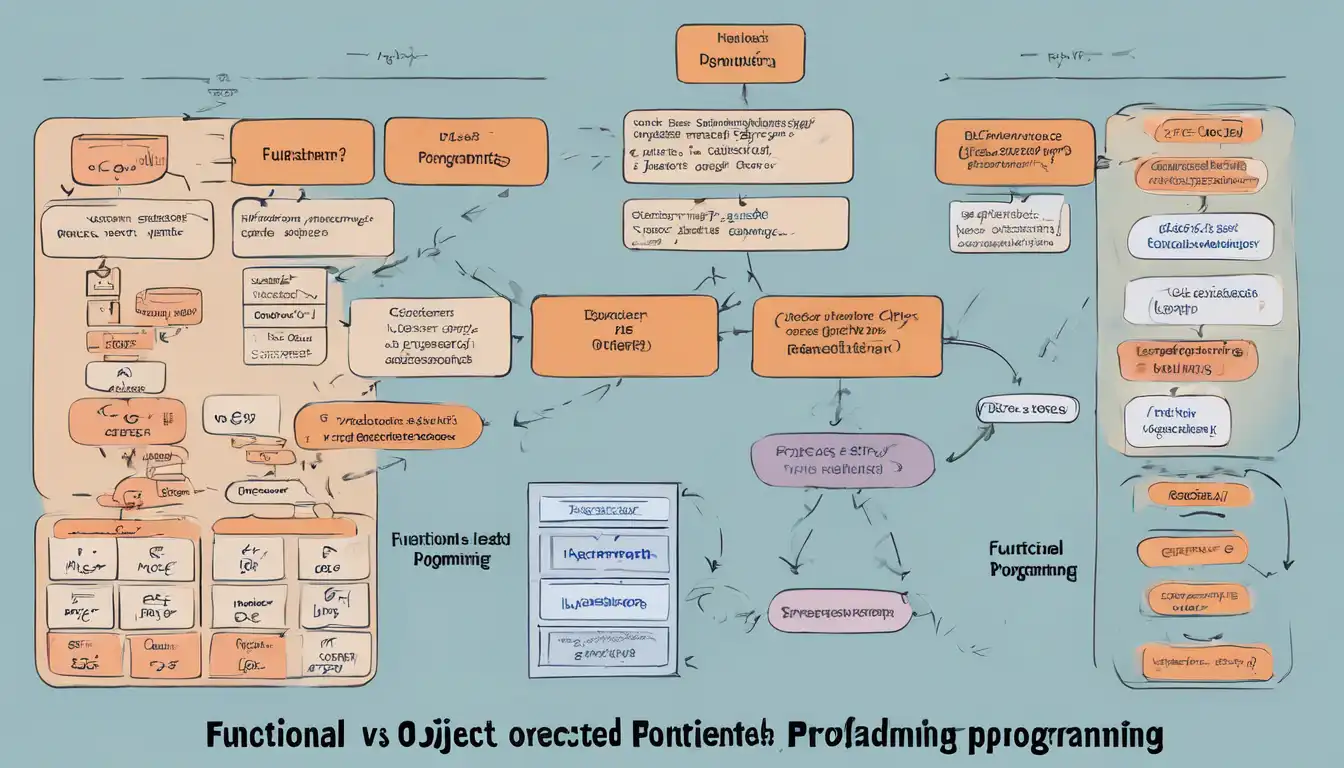Introduction to Programming Paradigms
In the world of software development, understanding the differences between functional programming (FP) and object-oriented programming (OOP) is crucial for choosing the right approach for your project. Both paradigms offer unique advantages and challenges, making them suitable for different types of applications.
What is Functional Programming?
Functional programming is a paradigm that treats computation as the evaluation of mathematical functions and avoids changing-state and mutable data. It emphasizes the application of functions, in contrast to the imperative programming style, which emphasizes changes in state.
- Immutability: Data is immutable, meaning it cannot be changed after it's created.
- First-class functions: Functions are treated as first-class citizens, allowing them to be passed as arguments, returned from other functions, and assigned to variables.
- Pure functions: Functions have no side effects and return the same output for the same input every time.
What is Object-Oriented Programming?
Object-oriented programming is a paradigm based on the concept of "objects", which can contain data, in the form of fields, and code, in the form of procedures. OOP focuses on the objects that developers want to manipulate rather than the logic required to manipulate them.
- Encapsulation: Bundling of data with the methods that operate on that data.
- Inheritance: A mechanism where one class acquires the properties and behaviors of another class.
- Polymorphism: The ability of an object to take on many forms.
Comparing Functional and Object-Oriented Programming
When deciding between FP and OOP, consider the nature of your project. FP is often better suited for applications involving concurrent processing and data analysis, while OOP is ideal for systems with complex behaviors and interactions between objects.
Performance Considerations
Functional programming can offer performance benefits in certain scenarios due to its emphasis on immutability and pure functions, which can lead to more predictable and easier-to-optimize code. On the other hand, OOP can sometimes introduce overhead due to the dynamic dispatch of methods and the management of object states.
Scalability and Maintenance
Both paradigms offer scalability, but in different ways. FP's stateless nature and pure functions can make it easier to scale applications horizontally. OOP's encapsulation and modularity can simplify maintenance and extension of complex systems.
Conclusion
Choosing between functional and object-oriented programming depends on the specific needs of your project. By understanding the strengths and weaknesses of each paradigm, you can make an informed decision that aligns with your development goals. For more insights into programming paradigms, explore our guide on programming paradigms.
